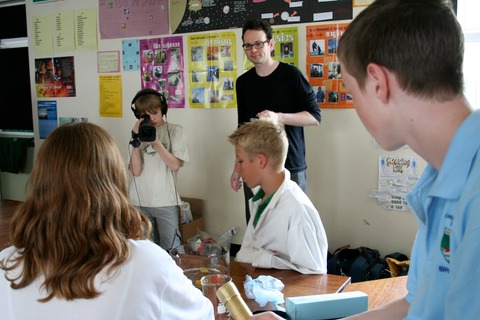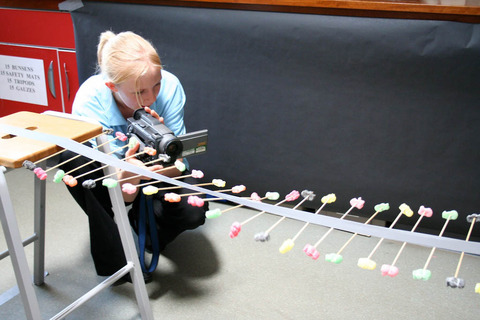Why SciCast started
SciCast started in early 2006, when television producer Jonathan Sanderson took the idea to NESTA. We wanted to explore what ‘public service children’s media’ might look like in the brave new world of contributory media. Could children making their own entertainment provide the same sort of inspiration and excitement that children’s TV used to offer?
We thought that making films might offer a much richer experience than watching films, and that the skills involved — teamwork, communication, self-expression, critical thinking, problem solving, constructing narratives, clarity of thought — are key life skills. By encouraging young people to be expressive, creative, and innovative, we’d help them in their subsequent lives, whatever future they chose.
We were also keen to provoke and inform debate about whose responsibility it is to provide such inspiration. Should industry be more involved, or are we happier leaving the challenge in the hands of public bodies like the BBC? Should we rethink the old division between ‘children’s’ and ‘education’ media? Could one project span primary and secondary schools, youth groups, families, degree students, and professional scientists?
Finally, we wanted to play a hunch: that science and engineering provide a unique opportunity for practical, accessible film-making. There are many terrific education video projects, but almost all are “film” projects — they’re descended from the patterns of thought common in drama production.
Dramas tend to be structured, planned, scripted, storyboarded, and produced with meticulous care. While commendable, this is a far cry from ‘posting a film from your mobile phone on YouTube.’ There’s a danger that your learning is about film-making, and not about the subject of your film.
Meanwhile, there’s a long tradition of simple, accessible, repeatable science experiments: demonstrations. The sorts of things familiar from, of course, The Royal Institution Christmas Lectures, How2, and many other TV series. Demonstrations make the perfect starting point for short films, and keep the whole problem manageable.
Above all, we wanted to encourage scientists of all ages to grab a camera, get their hands dirty with real, practical science, and share their excitement and passion with the world.
Thousands of film-makers, from primary schools to post-doctoral researchers, have joined us. Their inventiveness, wit, perfectionism, skill, and excitement continue to excite and humble us.


